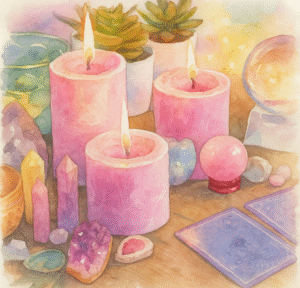Mental Health: Boundaries and Why is so Important
In any relationship, whether romantic, family, or friendship, boundaries are what keep things honest, safe, and emotionally healthy.
They shape how we show up for ourselves and for others. Learning how to set boundaries was one of the hardest but most important things I ever did. I used to believe that being a “good” person meant putting everyone else first, no matter what. If I didn’t, I felt selfish. That word alone used to make me feel ashamed.
But the truth? You can’t take care of anyone else if you’re constantly abandoning yourself. Boundaries are what help us protect our energy, stay connected to who we really are, and stop the burnout spiral that comes from always saying yes when we want to say no.
What Are Healthy Boundaries?
Boundaries are the personal lines we draw to define how we want to be treated. They let people know what’s okay and what isn’t. Without them, it’s easy to lose yourself in others’ expectations. You start living for everyone but yourself.
When you have strong boundaries, you’re not building walls. You’re building a healthier version of connection, one that respects your time, your space, and your emotional needs.
Why Boundaries Are So Important
They protect your energy. Without them, burnout creeps in fast. You might feel tired all the time, irritable, even physically sick. You start snapping at people or pulling away emotionally. I know that feeling well. For years, I was the one who said yes to everything, then cried in the bathroom from overwhelm.
They help you show up as your real self. Without boundaries, your identity can blur into whoever you’re with. Suddenly, you’re the person who goes along with everything because you “don’t mind” or “want to be easygoing.” But deep down, you feel lost.
They prevent resentment. When you’re always giving, it builds up. You might not even realize it until you’re snapping at your partner for forgetting the groceries or ghosting group chats altogether. Boundaries are how you avoid becoming the version of yourself you don’t even recognize anymore.
Examples of My Personal Boundaries
Over time, I wrote a list of what I will no longer tolerate in my relationships. This list changed everything for me:
- Don’t call me names.
- Don’t lie to me.
- Don’t spy on me.
- Don’t manipulate me with my past trauma.
- Don’t ignore me or shut down communication when things get tough.
- Don’t pressure me to isolate myself from my friends or family.
- Don’t force me to do anything with my body I haven’t freely chosen.
- Don’t try to control what I wear, where I go, or who I talk to.
Your list might look different, and that’s okay. What matters is naming your limits and sticking to them.
Signs You Might Have Unhealthy Boundaries
- You never have time to yourself.
- You say yes when you mean no.
- You feel resentful but don’t speak up.
- You let others decide what you do, how you feel, and how you show up.
- You feel guilty the moment you try to care for yourself.
How to Start Setting Boundaries
- Get clear on your needs. What do you need to feel safe, valued, and loved? Space? Honesty? Respect? Start by naming those needs.
- Make a list of non-negotiables. Write down the things that you can no longer accept. Keep this list close. When you feel like you’re backsliding, read it again.
- Practice saying no. It might feel awkward or even terrifying at first. That’s normal. Say no anyway. You deserve to protect your time and energy.
- Use calm, clear language. Saying, “I’m not okay with that” or “That doesn’t work for me” is enough. You don’t owe anyone a full explanation.
- Stay consistent. People might test your limits. Hold the line anyway. With time, those who respect you will adjust, and those who don’t will fall away.
- Give yourself permission to feel uncomfortable. Your body might resist. Your voice might shake. But that doesn’t mean you’re doing something wrong. It means you’re growing.
- Respect boundaries in return. Listen when others say no. Honor their limits. Boundaries go both ways.
A Final Word
Setting boundaries doesn’t make you mean. It makes you emotionally responsible. It shows people how to love you well. The more you honor your boundaries, the more you step into a life that feels like yours, not one that’s shaped by guilt or fear.
Your needs matter. Your peace matters. And you don’t need anyone else’s permission to protect it.
The information presented in this post is for informational and entertainment purposes only. Every effort is made to ensure the information presented in the following post is accurate and true; however, it does not replace advice from a medical professional. Always follow your doctor’s instructions and advice first and foremost. For more information read the disclaimer page on this site.








